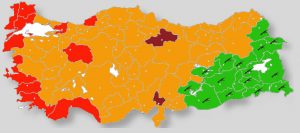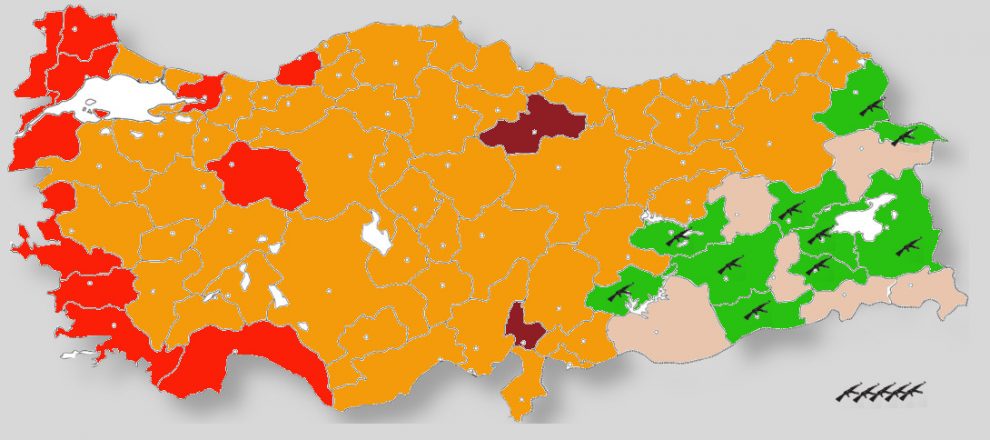The clearest proof of Turkish democracy’s viability is the election processes we have gone through. When the Justice and Development Party (AK Party) could not come to power alone in the June 7, 2015 general election with a 40 percent vote share, I wrote in this column the following words:
“So, there is no authoritarian regime in Turkey. So, fair and transparent elections are held in Turkey. So, Turkey is a free country operating in compliance with a living democratic system. I am writing these sentences because if the AK Party came out of the ballot box powerful enough to form a single-party government, the foreign media would have written the opposite. Turkey was gradually becoming authoritarian; the elections were being rigged and the end of the democratic regime was close. Indeed, they were writing these sentences before the election.”
Turkey was a democracy when President Recep Tayyip Erdoğan was victorious in the previous year’s referendum with only a two percent difference and will be a democracy when he wins the upcoming elections. Although the winner is already evident, let us consider some possible alternatives.
Even though the surveys show that the People’s Alliance formed by the AK Party and the Nationalist Movement Party (MHP) has between a 40-47 percent vote share, the alliance still ranks first in all the surveys conducted so far. Likewise, President Erdoğan is likely to win the presidential race as the surveys show his vote share between 52-58 percent.
Although being a right-wing party, the newly-formed Good Party (İP) will apparently receive votes mostly from the main opposition Republican People’s Party (CHP) electorate. In each scenario in which the İP exceeds the 10 percent threshold, a decline is observed in the CHP’s vote share, which is normally around 25 percent.
Although some surveys show that the Peoples’ Democratic Party (HDP) will exceed the threshold, most of the surveys suggest the opposite. Meanwhile, the MHP’s vote share seems between 10-13 percent, and it is hard to predict at this moment whether the party can go beyond the threshold.
Earlier this week, German Minister of State for Europe Michael Roth paid a visit to the İP leader Meral Akşener in the company of a delegation and the German Ambassador to Turkey, Martin Erdmann.

During their meeting, Roth said that the İP will present an alternative to the electorate in southeast Turkey, who have so far wavered between the AK Party and the HDP. But surveys indicate that the first choice of the Kurdish electorate is the AK Party, whereas the HDP ranks second. It might disappoint the German minister, but Akşener is a name known for her affinity with Mehmet Ağar, a notorious figure who served as interior minister during the 1990s, when unidentified murders were rampant in southeast Turkey. Consequently, it will be terribly wrong to assume that the Kurdish electorate will vote for the İP.
Whatever the result may be, we have been experiencing a peaceful electoral period, which makes us proud in the name of Turkish democracy.
Source: Daily Sabah







Add Comment